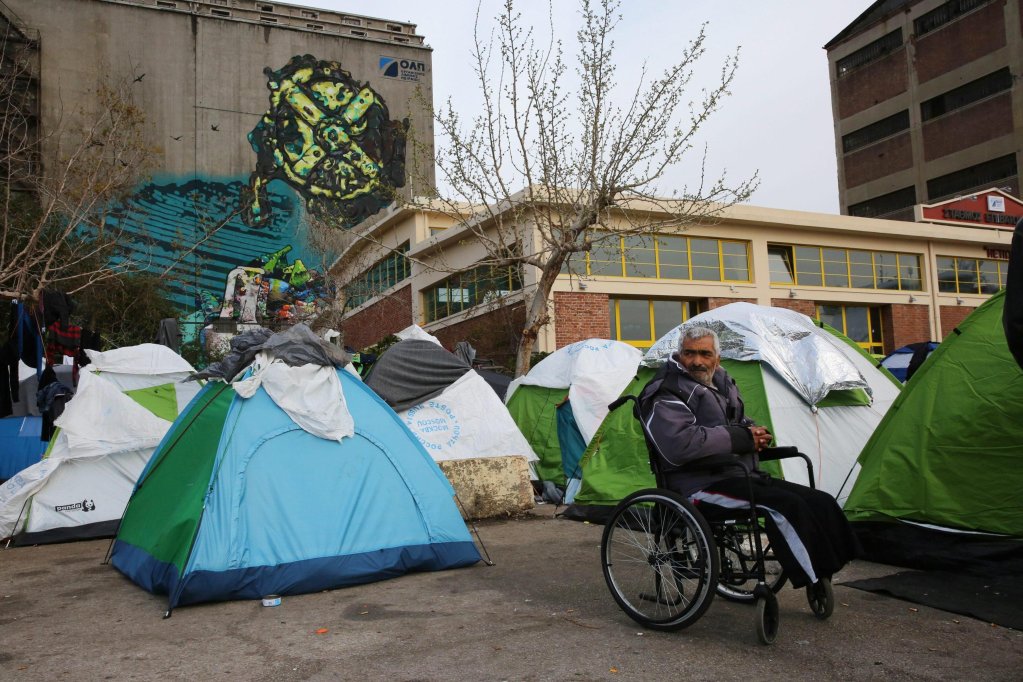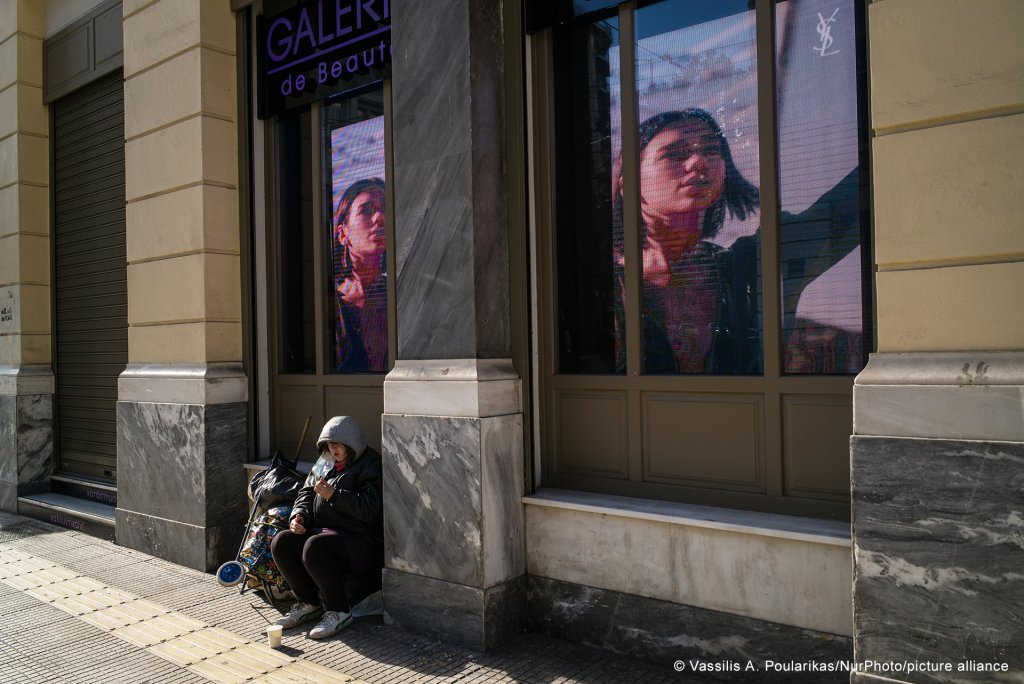Athens is cutting asylum-seeker benefits by 30 percent and abolishing rental subsidies, shifting funds to language and job training. NGOs warn that years of shrinking welfare and aid cuts are leaving thousands of refugees homeless and hungry.
Greece’s government has announced further cuts to refugee benefits, a trend that has been unfolding for several years as the government claims the move will shift the country from a welfare-based assistance to a model centered on "work and integration."
According to the Migration and Asylum Ministry, total spending on asylum-related programs will fall by around 30 percent, from 400 million euros to 288 million euros annually, through "restructuring benefits and rationalizing expenses," Ekathimerini reported.
The HELIOS integration program, which previously offered rental subsidies to recognized refugees, will be abolished, with funds redirected to Greek-language courses and vocational training. Apartments rented under the scheme in central Athens are to be released back onto the local housing market.
"Funding previously provided as rent subsidies to asylum applicants will be directed towards career training and Greek language courses," said Migration Minister Thanos Plevris on Monday, October 6, according to Kathimerini.
"Whoever is granted asylum in Greece will no longer live on subsidies at the expense of European and Greek taxpayers. They will be given the opportunity to work."
Financial aid for beneficiaries of international protection will also be cut by up to 50 percent, covering only "essential needs" under EU standards, the ministry told Greek City Times.
Read AlsoRefugee protection system questioned amid UNHCR budget cuts and calls for reform
A policy years in the making
The move continues a series of reductions that began in 2022, when the government ended the EU-funded ESTIA housing scheme for vulnerable asylum seekers.
At the time, then-Migration Minister Notis Mitarachi said the program had "completed its mission," though NGOs warned that thousands were left without housing.
By mid-2023, InfoMigrants reported that both asylum seekers and recognized refugees were facing food insecurity and homelessness as state benefits and housing support expired. The six-month post-asylum support period had already been reduced to one month, making the transition to independent living "virtually impossible."

The phase-out of ESTIA and the shrinking scope of HELIOS have coincided with soaring rents in Athens, driven by foreign investment and short-term rentals.
According to Eurostat, Greece’s housing cost overburden rate in cities reached 29.1 percent in December 2024, meaning nearly one in three urban households spends over 40 percent of disposable income on housing.
For asylum seekers and recognized refugees, who already face unstable income and limited rental access, the combination of rising prices and shrinking state support has made secure housing increasingly out of reach.
'End of the subsidy era'
Announcing the latest measures, Deputy Migration Minister Sevi Voloudaki said Greece was entering "a new, clear migration policy era."
"The era of allowances and passive residence is over," she said. "From now on, support is tied to work, education and real integration. Whoever resides illegally in Greece will either return or be detained. Whoever has received asylum will live from their work, not from benefits."
Voloudaki said the reforms would protect taxpayers and ensure transparency in public spending.
Under a new agreement with the Hellenic Corporation of Assets and Participations (Growthfund/Superfund), signed on 7 October 2025, all tenders for food, cleaning, security and maintenance in refugee facilities will be centrally managed.

Plevris said the arrangement would "increase transparency in procurement, reduce dependency on welfare, and redirect resources toward employment and integration."
Panagiotis Stampoulidis, the Growthfund’s executive director, called the pact “a recognition of our expertise in managing strategic procurement” and said it would ensure "efficient use of public resources."
The Migration Ministry also plans tougher penalties for people whose asylum claims are rejected. Those who remain irregularly in Greece and refuse voluntary return could face a minimum three-year prison term, with suspension possible only if they agree to leave.
"Those affected will henceforth have only two options: imprisonment or return," the ministry said, according to Blue News.
Read AlsoGreece: One woman presumed dead as 17 are rescued near Lesbos
Humanitarian fallout
While the government says the policy complies with European Union standards and aims to make Greece less attractive as a migration destination, humanitarian groups warn that aid withdrawals and domestic cuts are putting thousands of vulnerable people at risk.
In September 2025, The Guardian documented the closure of an Athens shelter run by METAdrasi after the NGO lost a third of its funding due to US and EU foreign aid cuts, leaving 30 women and children homeless overnight.

"We are losing the whole of the international protection system that has been in place for the last 80 years in six months," Lefteris Papagiannakis, head of the Greek Council for Refugees, told The Guardian.
For centers like these, the situation is existential, psychologist Thaleia Portokaloglou told the paper that as support collapses, "needs have turned from healing to survival."
Read AlsoCrete: Nearly 800 new migrant arrivals places Greek island under pressure once again
A growing gap
The Mitsotakis government argues that work-based integration is both fiscally responsible and socially sustainable.
But NGOs warn that without adequate housing and transitional support, employment pathways remain out of reach. Aid organizations continue to attempt to fill the gaps, but the situation is becoming increasingly untenable.
For many refugees, the combination of housing shortages, benefit cuts, and vanishing international funding has created what aid workers describe as a cycle of dependency without support.
Read AlsoGreece: Refugee council challenges asylum freeze
with dpa
